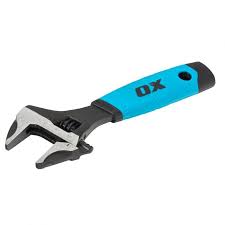The Essential Role of Tools in Everyday Life
Tools have been an integral part of human existence since the dawn of civilization. From the simplest handheld implements to complex machinery, tools play a crucial role in shaping our daily lives and driving progress across various fields.
Enhancing Efficiency and Productivity
One of the primary functions of tools is to enhance efficiency and productivity. By providing us with the means to perform tasks more effectively and with greater precision, tools enable us to accomplish more in less time. Whether it’s a simple hammer for carpentry or a sophisticated software program for data analysis, the right tool can make a significant difference in our output.
Fostering Innovation and Creativity
Tools also play a key role in fostering innovation and creativity. They provide us with new capabilities and possibilities, empowering us to explore uncharted territories and push the boundaries of what is possible. Artists use brushes and paints to create masterpieces, while scientists rely on advanced instruments to make groundbreaking discoveries.
Improving Quality of Life
Tools contribute to improving the quality of life by simplifying tasks, increasing safety, and enhancing comfort. From kitchen gadgets that make cooking easier to medical devices that save lives, tools have a direct impact on our well-being and overall standard of living. The right tool can make everyday activities more enjoyable and efficient.
Adapting to Changing Needs
In a rapidly evolving world, tools help us adapt to changing needs and circumstances. They allow us to tackle new challenges, overcome obstacles, and stay competitive in an ever-changing environment. As technology advances and new demands emerge, the development of innovative tools becomes essential for progress.
Conclusion
From ancient stone tools to cutting-edge digital technologies, tools have been instrumental in shaping human history and driving societal development. As we continue to innovate and invent new tools for various purposes, it is clear that their role in our lives will remain indispensable for generations to come.
Essential Tips for Proper Tool Usage and Maintenance
- Always use the right tool for the job to ensure efficiency and safety.
- Regularly inspect your tools for any damage or wear and tear, and replace them as needed.
- Keep your tools clean and well-maintained to prolong their lifespan.
- Store your tools in a dry place to prevent rusting or corrosion.
- Wear appropriate protective gear, such as gloves and goggles, when using tools to avoid accidents.
- Take the time to read and understand the user manual of each tool before using it.
Always use the right tool for the job to ensure efficiency and safety.
Using the appropriate tool for a specific task is essential to guarantee both efficiency and safety. By selecting the right tool for the job, individuals can complete tasks more effectively and with greater accuracy. Moreover, using the correct tool helps to minimise the risk of accidents or injuries, ensuring a safer working environment. Adhering to this principle not only enhances productivity but also promotes a culture of responsibility and diligence in all aspects of work.
Regularly inspect your tools for any damage or wear and tear, and replace them as needed.
Regularly inspecting your tools for any signs of damage or wear and tear is essential to ensure their optimal performance and longevity. By staying vigilant and replacing tools when necessary, you not only maintain efficiency in your work but also prioritise safety. A well-maintained set of tools not only enhances productivity but also minimises the risk of accidents or errors that could result from using damaged equipment. Remember, investing time in caring for your tools today can save you time, money, and potential setbacks in the future.
Keep your tools clean and well-maintained to prolong their lifespan.
To prolong the lifespan of your tools, it is essential to keep them clean and well-maintained. Regular cleaning and maintenance not only ensure that your tools function optimally but also prevent rust, corrosion, and other forms of damage that can compromise their effectiveness. By taking the time to care for your tools properly, you can extend their longevity, saving both time and money in the long run. Remember, a well-maintained tool is a reliable tool that will serve you well for years to come.
Store your tools in a dry place to prevent rusting or corrosion.
It is essential to store your tools in a dry place to prevent rusting or corrosion. Moisture can accelerate the deterioration of metal tools, leading to rust formation and reduced effectiveness over time. By keeping your tools in a dry environment, you can prolong their lifespan and ensure they remain in optimal condition for future use. Proper storage not only protects your tools but also helps maintain their functionality and performance, allowing you to work efficiently whenever needed.
Wear appropriate protective gear, such as gloves and goggles, when using tools to avoid accidents.
When using tools, it is essential to prioritise safety by wearing appropriate protective gear, such as gloves and goggles. These simple yet crucial precautions can help prevent accidents and injuries, ensuring a secure working environment. By taking the time to don the necessary protective equipment, individuals can safeguard themselves against potential hazards and carry out tasks with confidence and peace of mind.
Take the time to read and understand the user manual of each tool before using it.
It is essential to take the time to read and understand the user manual of each tool before using it. By familiarising yourself with the instructions and guidelines provided, you can ensure safe and effective use of the tool. The user manual contains valuable information on proper handling, maintenance, and potential risks associated with the tool, helping you avoid accidents and maximise its performance. Investing time in reading the user manual can ultimately save time and prevent unnecessary mishaps, making it a crucial step in using tools responsibly.
